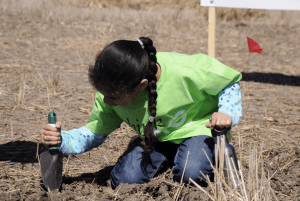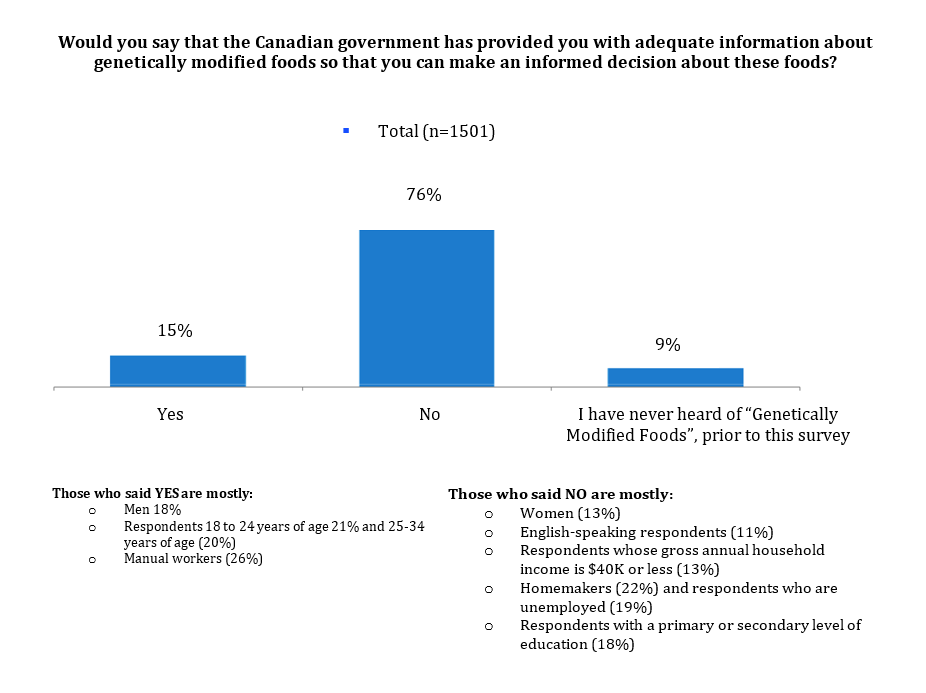By Michelle Ross, University of Saskatchewan student
A growing problem in agriculture is consumer’s lack of knowledge about where food comes from. According to a study by Australian retailer, Woolworths Limited, 92% of the 1,600 children studied between the ages of 6-17 didn’t know bananas come from a plant. Equally astonishing, in 2013 one in three primary school children in the UK believed cheese was made from plants according to the British Nutrition Foundation’s study of 27,500 children.

This problem hits home in Canada as increased urbanization has led to consumers being disengaged from the food they eat. To offset this, educating students about agricultural practices needs to be a larger priority in Canadian classrooms. While putting agriculture into the curriculum may seem like a simple answer, this is a multifaceted issue. From the perspective of agricultural producers, it is essential that the industry tells their story of agriculture to Canadian youth. This in itself is a substantial undertaking and can only be successful with the proper platforms and funding. For educators, putting agriculture into the classroom is a challenge added on top of an already hefty task of educating young people with limited resources.
Canada’s youth needs to be educated about agricultural practices to instill interest in the employment opportunities within the industry. Last fall on CTV News, the executive director of Ontario Agri-Food Education Inc., Colleen Smith, stated there will be 74,000 job openings in Canada’s agri-food sector by 2022, and one in three will go unfilled due to a shortage of applicants.
Offering education in agriculture can help inform consumers who frequently perceive nonfactual information on the Internet as the truth. Education gives consumers the opportunity to make informed science-based decisions in grocery stores. The need for agricultural education is exemplified by a 2012 poll conducted by B.C. Fruit Grower’s Association on GMO (genetically modified organism) foods. It shows most Canadians feel they have received inadequate information about GMO’s from the government and alarmingly 9% of respondents had never heard of a GMO.

Provincial governments can put agriculture into curriculums by using existing programs in partnership with producers and teachers. Agriculture in the Classroom (AITC) is an existing non-profit program that recognizes the need for more education and is a voluntary program for participating schools across Canada. The following are initiatives of AITC:
Little Green Thumbs in Saskatchewan
- Connects youth with where their food comes from by providing teachers with the resources to grow indoor gardens in classrooms.
- 90% of 2011-2012 participating teachers felt it improved students’ attitudes towards agriculture.
Teacher Ambassador Program™ in Ontario
- Involves the recruitment of recent education graduates to teach students lessons provided by Ontario Agri-Food Education.
Canadian Agriculture Literacy Week
- Teaches youth about agriculture through hands-on exercises and videos.
- Youth meet with local farmers and industry partners who share their story about agriculture.
Canada’s youth need to better understand how food is produced in order to contribute in the future to the agricultural industry and make sustainable purchase decisions. In order to achieve this, programs such as Agriculture in the Classroom should be mandatory in school curriculums, and will require the collaboration of industry, provincial governments and educators. This collaboration is a worthwhile endeavor that will ensure the future of agriculture.
Michelle Ross
Michelle’s hometown of Grenfell, Saskatchewan is where her family operates a grain farm and milks 190 Holsteins. Currently in her second year in Agronomy with a minor in Agribusiness at the University of Saskatchewan, she still finds time for numerous clubs. Michelle is a member of the U of S Rangeland Team, U of S Dairy Team, Co-op Excellence in Ag Program, as well as being a member of Team Saskatchewan for the Western Canadian Classic Junior Dairy Show. After completing her degree Michelle plans to remain involved in the family farm and explore the numerous career opportunities in the agriculture industry, and she hopes to travel.

